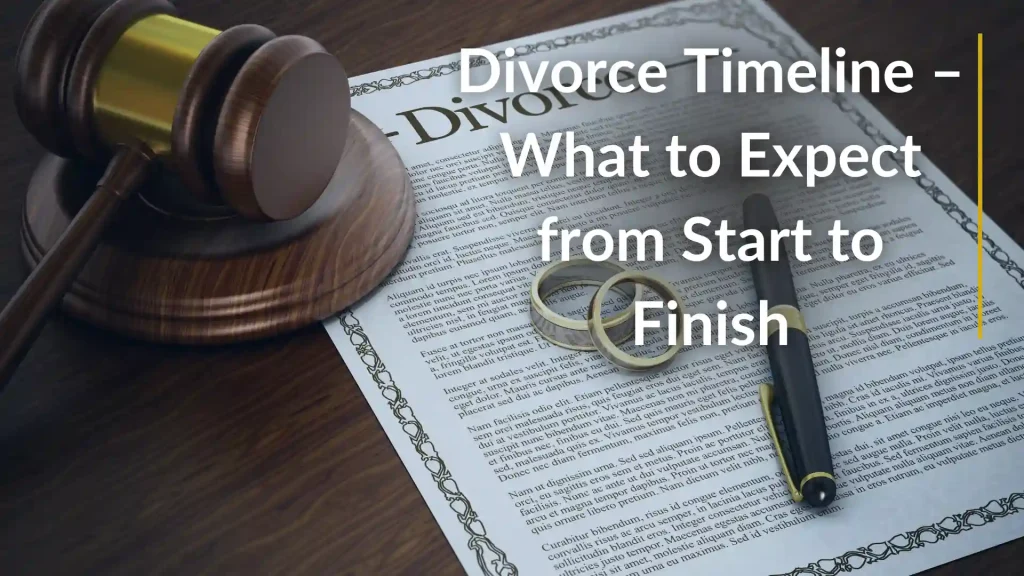 One of the most common questions for family law attorneys is: How long does divorce take in San Antonio? As with many legal issues, the answer is: It depends. A divorce in Texas can be finalized in as little as 60 days, but timelines may vary between months or even years, depending on several factors. One thing is constant: working with an accomplished family law attorney can help simplify the process, speed up the divorce settlement timeline, and protect your interests.
One of the most common questions for family law attorneys is: How long does divorce take in San Antonio? As with many legal issues, the answer is: It depends. A divorce in Texas can be finalized in as little as 60 days, but timelines may vary between months or even years, depending on several factors. One thing is constant: working with an accomplished family law attorney can help simplify the process, speed up the divorce settlement timeline, and protect your interests.
Steps for Getting Divorced in Texas
To file for divorce in Texas, either spouse must have resided in Texas for the past six consecutive months and have been a county resident where they are filing for at least 90 days.
- The first step is filing a divorce petition. Either spouse can file and initiate the process. The petition establishes the type of divorce (fault or no-fault) and the reasons for divorce. It can also contain a plan for child custody and splitting marital assets. There is a mandatory 60-day waiting period after filing a divorce petition.
- Next, the petitioner must present the respondent with legal notice of the filing. The respondent can accept a formal legal notice or sign a Waiver of Service to avoid the formal serving process.
- If the divorce is amicable, the spouses may only have to go to a single hearing to finalize any property/child custody agreements and then sign the final divorce papers. If the spouses cannot agree, there will be a divorce hearing.
- During a hearing, both sides present evidence and arguments for their position. A judge then decides on an appropriate divorce agreement. Depending on the level of disagreement, a divorce may involve several hearings and appeals.
- Once both sides reach an agreement or the court imposes one, the involved parties can sign the final divorce papers, which completes the divorce process.
- Property and debt division agreements in Texas can generally not be modified after they are finalized. However, either side can petition for child custody/support modification until the child turns 18.
Factors that Affect the Divorce Timeline
 Most people expect to complete the divorce process in six months to a year. However, several factors can affect how long a divorce in Texas takes.
Most people expect to complete the divorce process in six months to a year. However, several factors can affect how long a divorce in Texas takes.
Fault vs. No-Fault
Texas allows for both fault and no-fault divorces. In a no-fault divorce, neither party has to demonstrate wrongdoing, which can speed up and streamline the process. Fault divorces take longer as the petitioner must prove the respondent’s wrongdoing.
Contested vs. Uncontested
Uncontested divorces also take less time than contested divorces. Even though there is still a mandatory 60-day waiting period, uncontested divorces usually won’t require several hearings and appeals costs to enforce property division and child custody arrangements.
Complexity of the Marital Estate
Even when divorce is amicable, splitting up a complex estate can take time. Texas is a community property state, so assets acquired during a marriage are generally considered jointly owned, and property acquired before marriage is kept separate. However, courts generally presume that owned property is community property, and proving specific property is separate can be difficult, especially for complex estates where diverse asset classes or where assets might have intermingled.
Presence of Children or Dependents
Divorces involving minors or dependents may take longer as the parties iron out custody/support agreements, especially if they have disputes. Ultimately, the final decision for custody matters falls into the court. Even in cases where both spouses agree on a specific arrangement, the judge might order something different if it is in the child’s best interest.
How a Divorce Lawyer Can Speed Up the Process
Technically, you do not need an attorney to pursue a divorce, but an attorney can help the process go faster. Attorneys can play a key role in resolving disputes and helping the parties to reach a satisfactory agreement.
More generally, an attorney can reduce the need for repeated hearings and appeals by drafting comprehensive divorce agreements that meet both parties’ interests, especially when using collaborative law in divorce, which focuses on open communication and mutual agreement rather than courtroom battles.
In contested divorces, an attorney can vigorously defend your side of the issue and seek a speedy, court-ordered resolution. Without an attorney, a divorce can take significantly longer, and there is a greater risk of finalizing an agreement that may not align with your best interests.
Suppose you have more questions about the legal steps in a divorce case or the timeline for divorce settlement negotiation. In that case, our team is here to help you understand your rights and take the first step toward securing the necessary benefits. Contact Higdon, Hardy & Zuflacht, L.L.P. online or call (210) 349-9933 to schedule a case consultation with a family law attorney in Texas.

